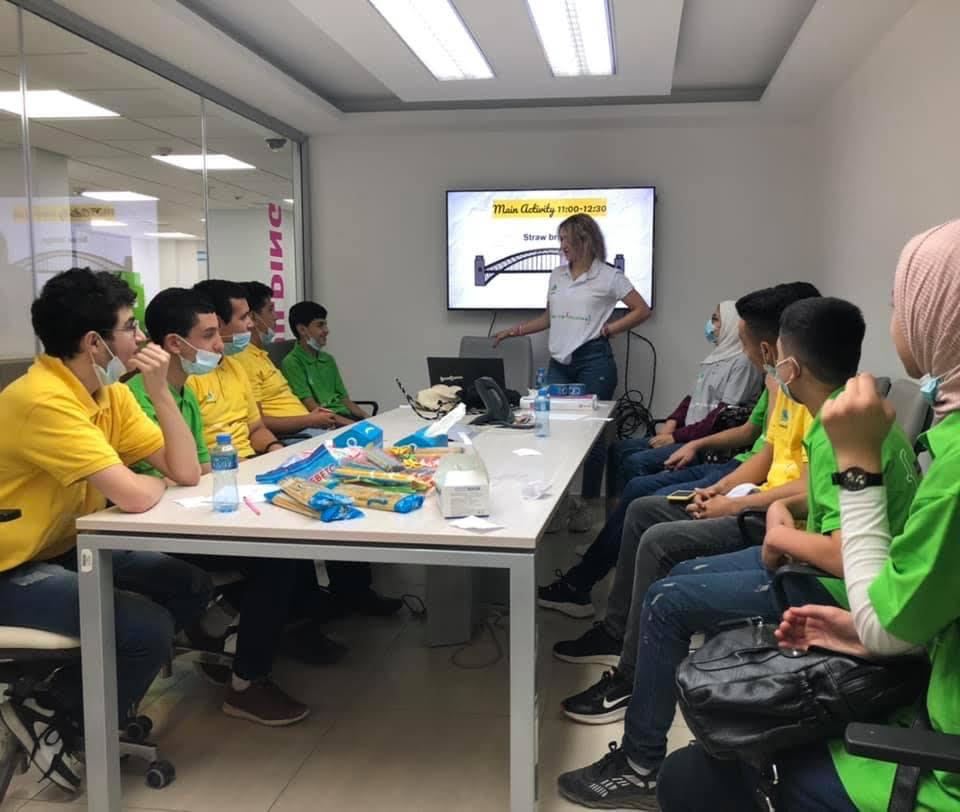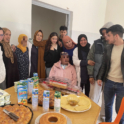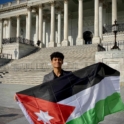Maryame has taken the lessons learned from her exchange year to make a difference in her community.
STORIES
Design Thinking an Inspired Life
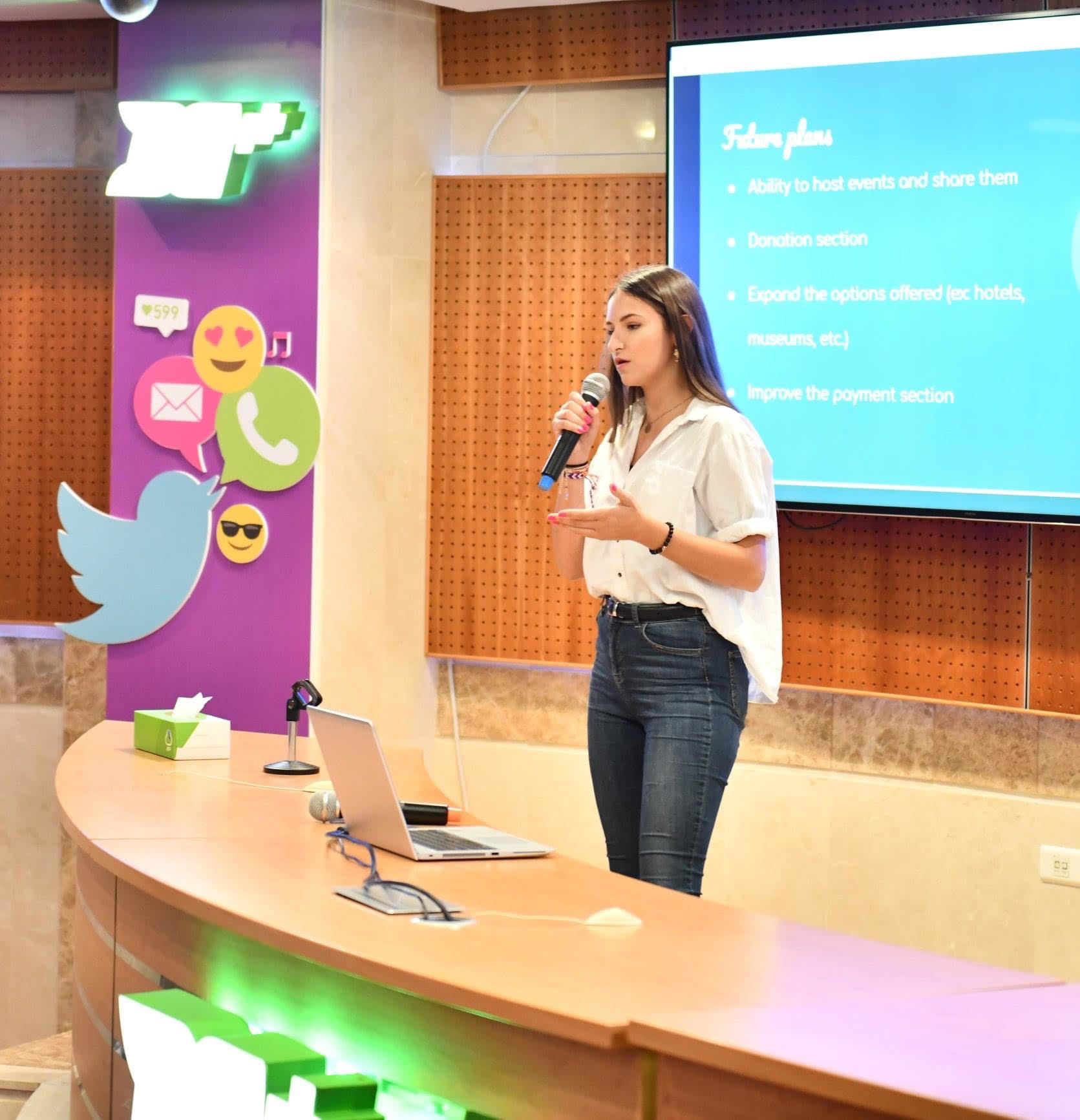
By Maya Sheep (YES 2018–2019, West Bank, placed by AFS-USA in Chesterland, OH)
On January 6, Najah TV, a local Palestinian news channel, interviewed me to talk about my experience with design thinking. This TV interview was a great opportunity for me to introduce my community to a concept that has helped me understand how much I like to help others. In my own words, I would define design thinking as a lifestyle where we change the way we look at our everyday interactions, experiences, and the challenges we face in our lives. My interest in design thinking has grown over the years as this concept helped me discover a new world to explore.
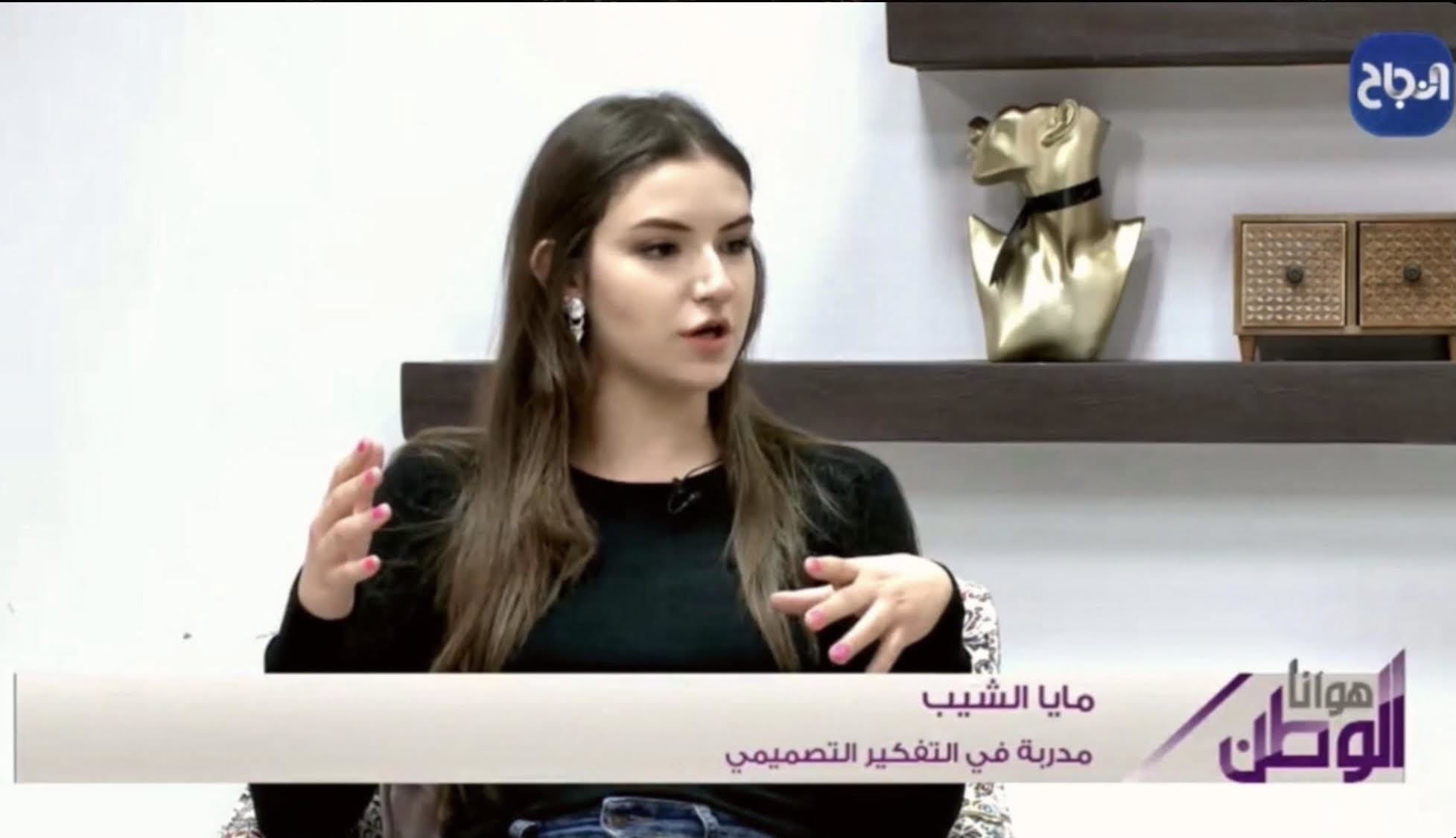
During my freshman year of high school in 2016, I was part of the Code for Palestine Program. Organized by the PalTel Group Foundation, a Palestinian non-profit organization that focuses on youth empowerment through education and technology, Code for Palestine is a three-year-long program that begins the summer before 9th grade and concludes at the end of 11th grade. It is a computer science camp that aims to build critical thinking and design thinking skills to complement coding education. By the time I graduated from this program, I had designed a video game similar to Mario Brothers, a website about feminism and gender equality, and a tourism app for the Palestinian Territories. The last project was inspired by my YES experience in the United States. While on the YES program, I found GPS very helpful for touring my new surroundings, so I developed this idea into an app for travelers visiting the West Bank.
My interest in design thinking and experience with the Code for Palestine Program encouraged me to apply to the 2020 Design Thinking for YES Workshop. Alongside 24 fellow YES alumni from 24 different countries, I participated in this nine-week-long workshop. Throughout this workshop, I learned all about design thinking and made good relationships with people from around the world. The workshop assignments and collaborative projects that we worked on weekly were a great way to keep our spirits up and interact with each other during the COVID-19 pandemic. Later in 2020, I volunteered with Code for Palestine as a teaching assistant where I led classes on design thinking skills. As a result of this teaching experience, design thinking has also helped me shape my public speaking capabilities. In 2021, I served as a supervisor with Paltel Group Foundation, where two peers and I created and taught a design thinking curriculum for Code for Palestine’s summer camp.
Design thinking helped me choose my university major in international relations. Since design thinking assesses human interactions and utilizes a problem-solving process, I figured I could apply this to a career in international relations to solve problems in the political sphere. Additionally, since international relations will require more world travel and human interaction with people from various cultures and ideas, my knowledge in design thinking will help me accept cultural differences and foster curiosity in people’s backgrounds.
Thanks to design thinking, I’ve been able to create a life of possibilities and am eager to explore what lies ahead in the future.
